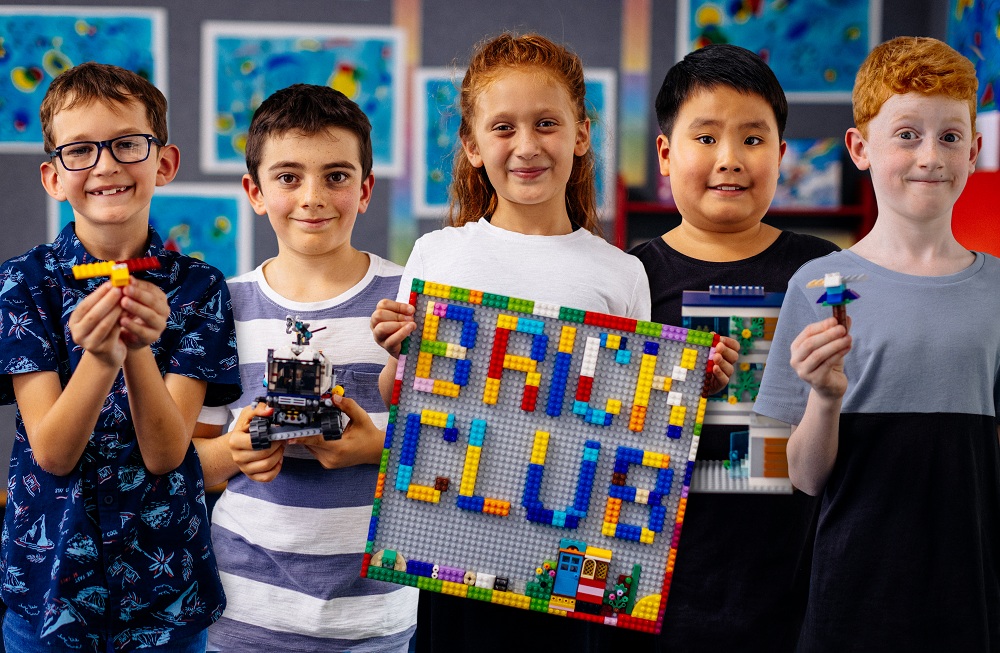This month, LEGO Foundation has announced their support of Play Included, a UK-based social enterprise dedicated to training teachers, psychologists, speech and language therapists, and other professionals to use LEGO play for therapeutic purposes as part of the Brick-by-BrickTM program.
The partnership is based on a shared belief that all children should have equal opportunities in life to develop the broad set of skills needed to thrive in the 21st century, such as social communication skills.
Children on the autism spectrum and those with other social and emotional challenges can struggle to understand their feelings and those of others, communicate effectively, work together with peers and make friends. This can significantly impact a child’s wellbeing and ability to cope at school and in other social situations. Programs like Brick-by-Brick seek to empower these children through simple play-based strategies.
On the ground here in Australia, Learning Links has been a local provider of LEGO® based therapy since 2018, running over 20 small group programs for more than 100 children.
Following the evidence-based structure of the LEGO® based therapy Brick-by-Brick program, Learning Links psychologists have seen significant, positive outcomes for the children involved. Pre- and post-testing demonstrates that children learn how to better communicate with their peers, listen to, follow and give instructions, seek clarification of tasks, wait their turn, work in a group, manage their behaviour and socialise more confidently. Children achieve this by working together in small teams to create LEGO creations or build specific models, with each child assigned a specific role (Builder, Engineer or Supplier) to build the model. They work together on the build and rotate roles to learn different responsibilities.
Learning Links CEO, Birgitte Maibom shares her insights around the benefits of play-based learning and how this can give children on the autism spectrum and those facing social and emotional challenges an equal opportunity in life to develop a broad set of skills.
Benefits:
- Play Therapy is a widely recognised, evidence-based strategy that encourages children to play out real or metaphorical experiences, empowering them to express, regulate, communicate, practice and master new skills.
- Through the Play Therapy techniques used in the small group LEGO® program, we see children with autism and a range of social and emotional challenges learn to regulate their needs more easily and also better understand the needs of their peers
- The structured play-based learning program helps children to learn a range of crucial social and communication skills like turn-taking, listening, following instructions, and interacting with peers. These are skills that will help these children build friendships, navigate social situations and cope in the school environment
- Over the 12-week Brick-by-Brick program, children start to verbally communicate with one another about their building project, seek each other’s approval, become better at giving each other praise and practice their negotiation skills – often without prompting
- The Brick-by-Brick program helps these children to come together through a shared interest in LEGO play and allows them to play and build together in a supportive small group setting
- The Brick-by-Brick program gives children a unique and meaningful learning opportunity that creates positive social experiences, an opportunity to connect with others over a shared interest and improved emotional wellbeing
- Playful, social support initiatives like Brick-by-Brick can also help to reduce negative outcomes such as social isolation and mental health problems and help build stronger societal awareness and acceptance of autism and other difficulties children experience
Conclusion:
Data shows that up to 46% of children on the autism spectrum between 3-16 years and 70% of children aged 10-14 experience at least one mental health condition which can impact social skills, sensory processing, communication, executive functioning and a child’s ability to cope with change.
The Play Therapy approach used in the Brick-by-Brick program is proving to be effective in supporting children to build vital social and emotional skills.
More research will be carried out on the Brick-by-Brick program as it continues to roll out internationally, to give more children with autism, social and emotional difficulties and other challenges such as ADHD and anxiety the opportunity to learn in a way that suits them best and gives them equal opportunities to learn and develop like other children.

Birgitte started her career as a secondary language teacher writing her master’s thesis on the topic of communication strategies in second language learning. She joined the not for profit sector in 1998 and has since enjoyed a successful career in management and senior leadership across children’s services, disability, health and youth programs. Birgitte joined Learning Links in 2013 and was promoted to the role of CEO in July 2015. Prior to joining Learning Links Birgitte worked in senior leadership roles in disability services for over 8 years.









